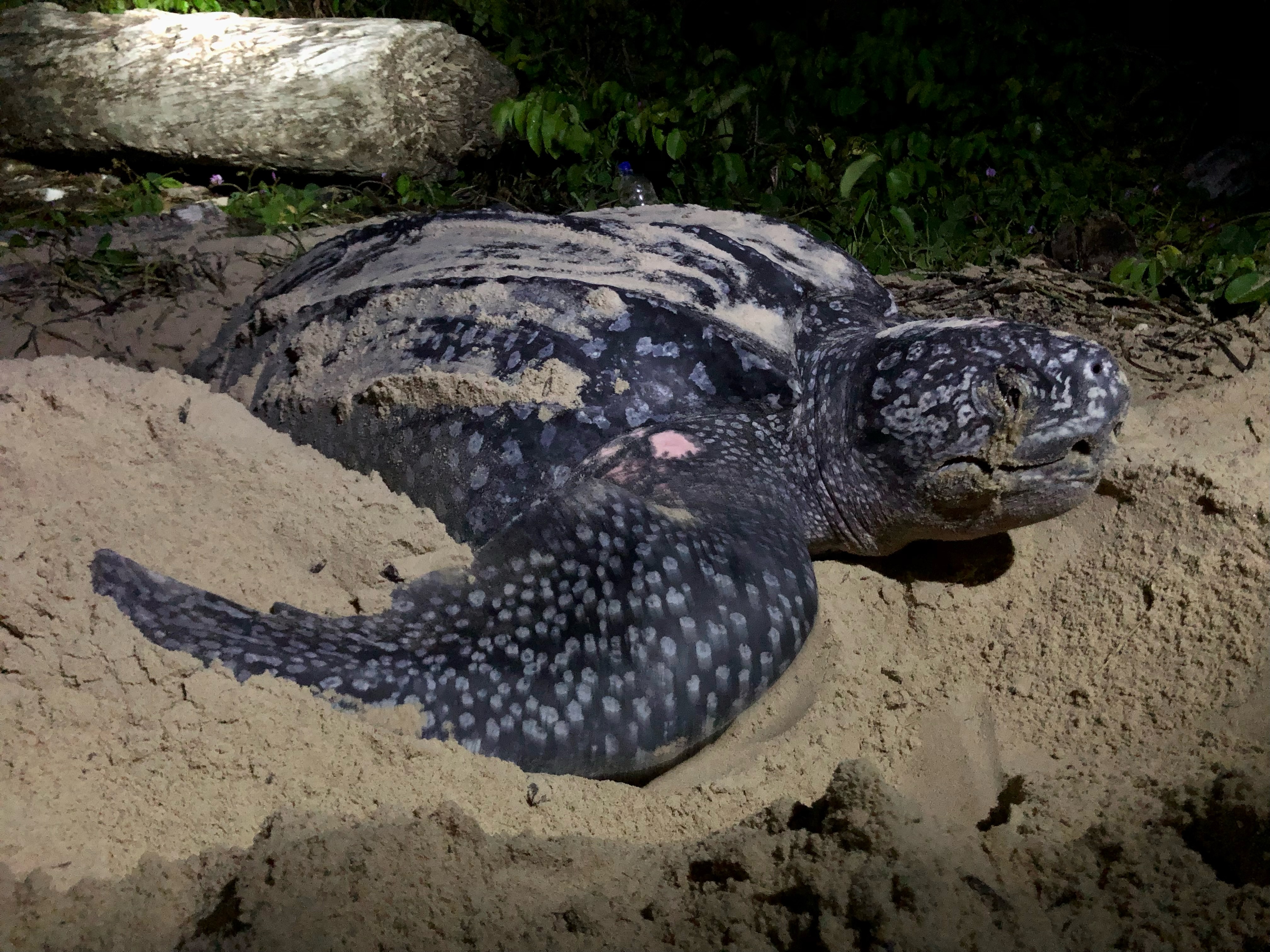Projects to advance marine wildlife conservation & welfare through tagging
Projects are being undertaken in association with PhD students and their supervisors in Biosciences at the University of Exeter, to advance marine wildlife conservation & welfare through tagging.
Refining the tagging of wild fish

This NC3Rs-funded project combines pain-relieving drugs with data logging tags on wild Atlantic bluefin tuna (Thunnus thynnus) in UK and Jersey waters. Currently, these large pelagic fish undergo tagging without anaesthesia due to unknown drug efficacy and practical challenges in wild settings.
The project develops methods to safely administer pain relief during boat-based tagging operations and analyses post-release behavioural responses through tag data. This approach aims to improve animal welfare while collecting more reliable scientific information.
"This welfare-based refinement to wild fish tagging will not only reduce our impacts on the fish but also strive for more accurate, unbiased results."
Findings will provide guidance to researchers on the efficacy of pain management practices for large pelagic fish research.
Activity patterns of fish post angling and tagging
This project examines the effects of catch-and-release fishing and research tagging on Atlantic bluefin tuna (Thunnus thynnus), a species frequently targeted in global recreational fisheries. Current information on the impacts of these practices remains limited and primarily short-term.
By combining short-term and long-term data from various tag types, the research deciphers how angling and tagging influence wild Atlantic bluefin tuna behaviour.
The findings will provide crucial insights for optimizing animal welfare standards while ensuring high-quality, reliable research data collection.
Responses of shark species to catch and release
In response to a need for assessment of the impacts of recreational fishing and tagging efforts on shark species, this collaborative project uses electronic tags to study the behaviour of blue shark (Prionace glauca), porbeagle shark (Lamna nasus), and tope shark (Galeorhinus galeus) following catch and release in sea angling contexts.
The work takes place across the UK and Jersey and involves the angling community, conservation organisations, government bodies and partner research centres, with the aim to provide information that can be used to improve welfare of animals in recreational fisheries and refine research workflows for marine species.
Leatherback turtle spatial ecology

Leatherback turtles are a globally distributed, charismatic species that has suffered considerable declines in the past decades as a result of the expanding human footprint in marine ecosystems.
This long-term project, spanning two decades of active research and conservation and involving partners from Gabon and Equatorial Guinea, aims to characterise the movements, population dynamics, and conservation status of the largest leatherback turtle rookery in the Atlantic.
The work involves a variety of tag technologies that have been used to describe the long-range migration routes and foraging habitats of turtles, characterise their connectivity across the Atlantic ocean, and identify threats facing the population.
Ongoing research efforts strive to create an ocean-wide model of turtle movement and behaviour that may reveal residency hotspots past the battery life of tracking tags, shedding light on reproductive cycles and the possible impacts of climate change on turtle biology.
